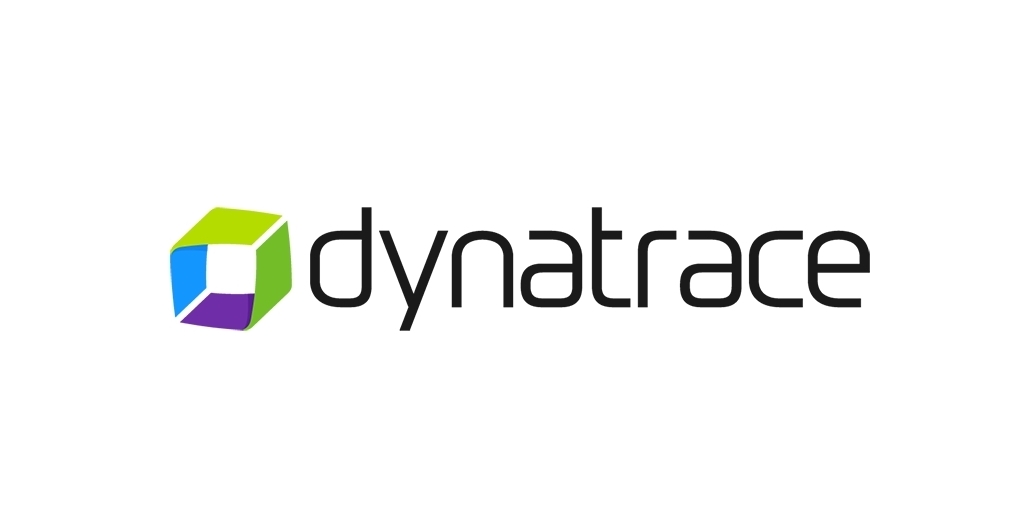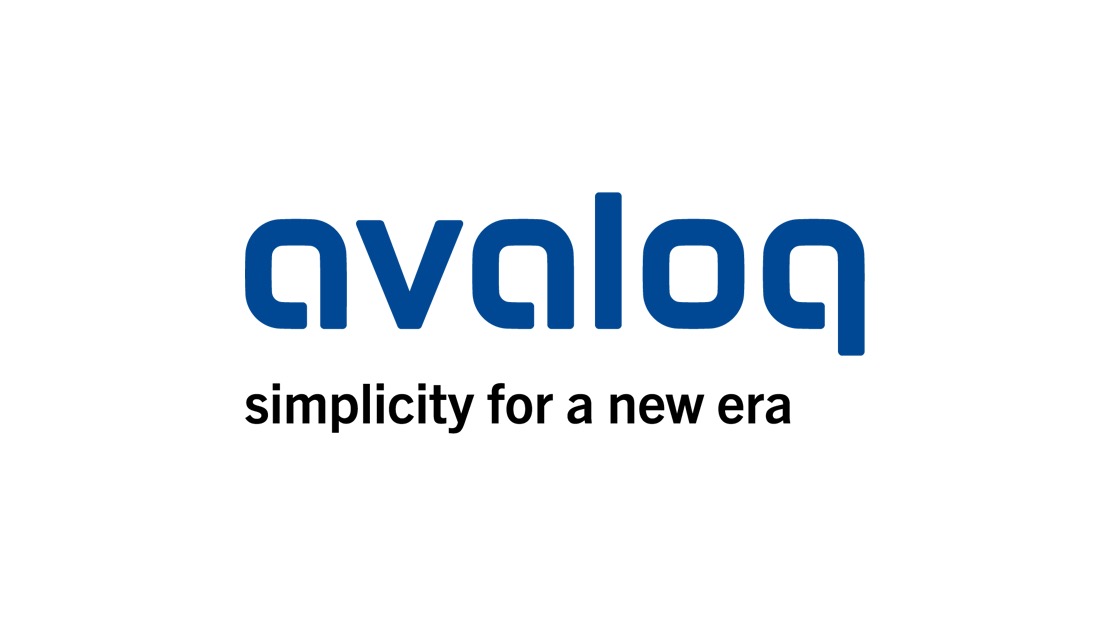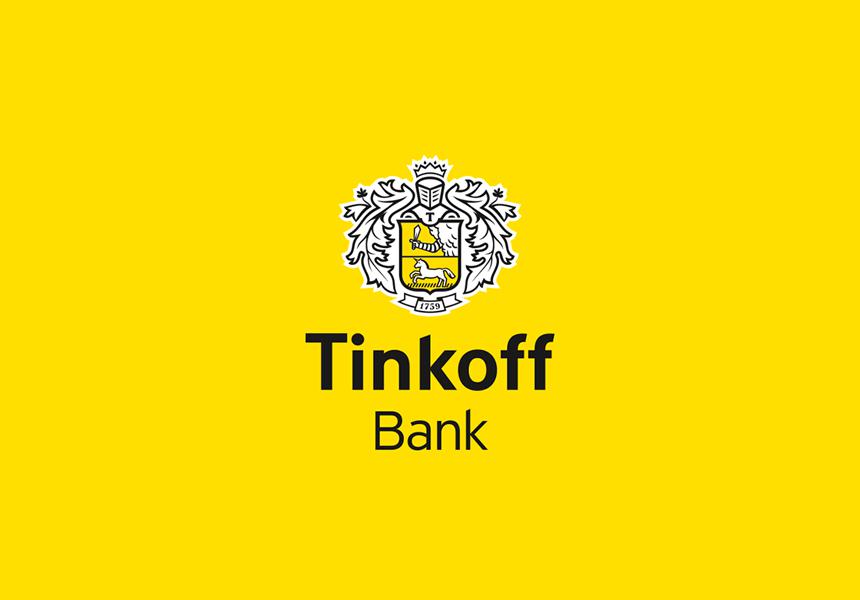Published
- 07:00 am

Länsförsäkringar has integrated Meniga’s cutting-edge personal finance management (PFM) solution into its own digital banking platform to help drive customer engagement, boost loyalty and dramatically improve the overall user experience of its customers across Sweden.
Meniga, the global leader in personal finance banking solutions, has announced a partnership with Länsförsäkringar, one of the largest financial institutions in Sweden, to launch a new Personal Finance Management (PFM) solution.
As part of the agreement, Länsförsäkringar has integrated Meniga’s cutting-edge PFM solution into its own digital properties to help drive customer engagement, boost loyalty and dramatically improve the overall user experience of its customers across Sweden. The partnership with Meniga also marks a significant step in Länsförsäkringar’s broader vision of digitalising its entire offering and integrating all of its services - banking, personal lending and insurance - within one, easily accessible, solution.
Länsförsäkringar’s new solution harnesses Meniga’s data management platform as the foundation for providing its customers with access to real-time data on their spending behaviour, and helping them better understand and manage their finances.
Acting as a personal finance advisor and an easy-to-use tool for everyday banking, the solution consists of several features designed to make the user experience as interactive and immersive as possible, including:
Enhanced budgeting and financial planning capabilities
Categorised and enriched transactions, as well as savings goals and a full overview of transaction history
Extensive insights and reports offering a seamless overview of a customer's financial life
Practical search capabilities for specific transactions
Länsförsäkringar’s new digital banking solution is available in Sweden via iOS and Android app stores.
Georg Ludviksson, CEO & co-founder of Meniga, comments:
“We are extremely excited about joining forces with Länsförsäkringar. Partnering with such a reputable bank will no doubt prove instrumental in further cementing our position as the go-to digital banking solutions provider in the Nordics. Having worked assiduously with Länsförsäkringar to create an outstanding and first-class personal finance management experience for their customers, we are also very pleased to have been able to assist them during a time when so many people are in need of support and looking to take control of their finances.”
Related News
- 09:00 am

Dynatrace today announced the findings of an independent global survey of 176 CIOs in the financial services sector, revealing that their IT teams are struggling to keep up with digital transformation. The pandemic has forced financial services organisations to urgently pivot their go-to-market strategies and accelerate digital innovation. However, the traditional IT operating models commonly used within financial services organisations are proving ineffective at keeping up with their modern cloud-native architectures. For example, siloed teams and multiple monitoring and management solutions are hampering IT’s ability to drive value for the business. The report, “How to transform the way teams work to improve collaboration and drive better business outcomes,” is available for download here.
The survey reveals:
- 91% of CIOs in financial services organisations say digital transformation has already accelerated, and 57% predict it will continue to speed up.
- 90% of CIOs say IT’s ability to maximise value for the business is hindered by challenges, including IT and business teams working in silos.
- 66% of CIOs say they are fed up with the need to piece together data from multiple tools to assess the impact of IT investments on the business.
- 43% of CIOs say limited collaboration between teams disrupts IT’s ability to respond quickly to sudden changes in business needs.
- 16% of an IT team’s time is spent in meetings with the business to identify the causes of and solutions to problems. This issue alone costs financial services organisations an average of $1.7 million annually due to lost productivity
“Consumers are relying on online and mobile financial services now more than ever. As a result, digital capabilities have become critical to driving revenues and enhancing customer relationships for banks, fintechs, insurers, and other financial services providers,” said Abdi Essa, Regional Vice President, UK&I, Dynatrace. “However, the pressure that their IT teams are under to meet this demand for faster innovation and improved financial services experiences is outstripping what they can deliver. Siloed teams, a lack of cross-team collaboration, and the absence of a single source of truth all hinder IT departments from achieving business goals.”
Additional findings from the report include:
- 44% of financial services CIOs say they have limited data and visibility into users’ perspectives on how digital services are performing.
- Only 18% of financial services organisations have a single platform that enables cross-team collaboration and a true understanding of IT’s business impact.
- 44% of CIOs say IT and business teams work in silos.
- 40% of CIOs say limited cross-team collaboration makes it more difficult to identify the severity of an issue and minimise its overall business impact.
- To ease the burden on IT and avoid stretching limited resources beyond their limits, financial services organisations are adopting new practices that rely on breaking down silos:
- 52% are adopting BizDevOps
- 49% are adopting Autonomous Cloud Operations
- 48% are adopting NoOps
“Often, within financial services organisations, different teams use various tools to monitor separate areas of the business, from user experience, to infrastructure, and application performance,” added Essa. “The result is that there’s no single and consistent source of truth, making it difficult for teams to understand their data, identify issues, and collaborate effectively. To maintain productivity and drive the business forward, financial services organisations must transform the way their teams work. Breaking down silos between IT and the business will be key to bringing teams together with a single, unifying language that supports collaboration and helps drive greater value for the business and its customers. Empowering teams with a single platform that delivers precise, real-time insights will drive shared goals and improve the outcomes of digital innovation in financial services.”
The report is based on a global survey of 176 CIOs in financial services institutions with over 1,000 employees, conducted by Vanson Bourne and commissioned by Dynatrace.
Related News
- 02:00 am

Klarna, the leading global banking, payments and shopping service, has released its latest Shopping and Money Management trend reports.
Klarna’s quarterly global Pulse reports underline consumers’ difficulty to understand the costs of using “traditional” payment methods, such as credit cards, and their overall shopping and money management behaviour. While consumers may have missed the social aspects of shopping instore and being able to touch and feel new products, the trend towards online shopping under lockdown looks set to stay. In the UK almost half (48%) of consumers shop online at least once a week, up 26% from Q1, leading to a shift away from cash and towards credit and debit cards, and other alternative payment methods.
With the shift towards online shopping continuing, Klarna’s Pulse report highlights the challenges consumers face when it comes to using credit cards. Over a quarter (26%) of Brits do not know how much interest their credit card charges, 15% only pay off the minimum amount each month and 23% have incurred unexpected credit card costs.
The majority of UK consumers (66%) own at least one credit card, with 23% of them using it as their main card for purchases and 43% for emergencies or sporadic high ticket purchases. However, almost two thirds (59%) would rather go to the dentist or do household chores than read their credit card’s fine print or work out the cost of its APR. Surprisingly, this is particularly true for those with a high interest in personal finance.
BNPL offsetts online shopping issues.
When it comes to payment preferences, a quarter (26%) of UK consumers have used BNPL, enabling them to defer payments or pay in installments. The majority of consumers use BNPL because they want to offset the risks of online shopping - which is set to increase in the future. Almost 4 in 10 (37%) feel shopping online can be risky. In fact, more than 6 in 10 (62%) of those who use BNPL said that the main benefit of paying after delivery is to be able to check a product before paying, while almost half (45%) of BNPL users said paying only for the products they keep was one of the main benefits.
Interestingly, the research also found that while most people have heard of BNPL (85%), only a quarter (26%) have actually used it, explaining the high level of confusion about how BNPL works among non-users. A quarter (24%) of people who hadn’t ever used it thought BNPL attracted high interest, despite none of the new breed of BNPL companies charging interest and Klarna charging neither interest nor fees on BNPL products.
Alex Marsh, Head of Klarna UK, commented:
“It’s clear that over a year of restrictions has caused a shift in consumer behaviour which looks set to stay, with online shopping continuing to rise. As a consequence consumers have also shifted their payment preferences to match their lifestyles. The research has shown that while many consumers own credit cards, they are increasingly getting stung by a lack of understanding of how they work, unexpected fees, and the danger of rolling over debt month to month. On the contrary, UK consumers using services like Klarna’s benefited from additional flexibility at no extra cost, saving £76m in credit card interest last year alone.”
Klarna’s Money Management pulse is available here.
Klarna’s Shopping pulse is available here.
Related News
- 03:00 am

Randall and Quilter Investments Holdings, a leading non-life global speciality insurance company focusing on Program Management and Legacy Insurance businesses, has renewed its contract with Atos for a further three years as its core digital services partner to maintain and modernise its IT estate.
Atos|Syntel has managed Randall and Quilter’s growing IT footprint since 2018 which is a result of its mission to generate profit from the expert management of legacy non-life insurance acquisitions and reinsurances.
Sangeeta Johnson, Head of Operations at Randall and Quilter: “We require a partner that can take a strategic view of our digital operations and optimise a disparate set of systems in order to help realise our core mission and in opting to renew our contract and with Atos we have the right partner to help us deliver on our objectives.”
David Haley, Atos Head of Financial Services and Insurance, Northern Europe: “Through close collaboration Atos is able to audit, identify and achieve rationalisation of the Randall and Quilter digital estate, presenting an integrated and modernised ecosystem, helping to manage its operations effectively and realise the value of its investments within the highly regulated geographies in which it operates.”
As a partner to a number of the world’s leading banks and insurers, Atos in the UK and Ireland is an FCA accredited business and has a growing footprint and expertise in assisting the digital transformation of legacy insurance acquisition organisations.
Related News
- 09:00 am

Related News
- 04:00 am

Cashflows, the platform that makes it easy for merchants to accept payments, today publishes new research revealing the impact of the pandemic on UK consumer shopping habits. The research shows a marked increase in those who say they feel motivated to buy based on ethics, however cost, quality and convenience remain the primary concerns.
More than nine in ten (91%) UK consumers say they actively seek out products with ethical affiliations and 35% are more motivated to do so now than they were before the pandemic. This rises to 45% for the key retail demographic of 18-35 year olds, and 47% for consumers within Greater London. Respondents over 56 are most likely to opt for local produce (43%) and British manufactured products (42%), whereas 18-35 year olds seek cruelty-free products (32%) and products with recycled packaging / that do not use plastic (30%).
The research does, however, reveal a disconnect between intention and action. 39% of respondents now buy more from chains or large corporates like Amazon than they did before the pandemic, and only 11% have reduced these purchases. Independent retailers have experienced a more mixed picture - 24% of respondents say they have shopped more at independent stores whereas 23% have done so less since the pandemic began.
Nevertheless, 62% of Brits say they enjoy buying from local providers, such as farm shops and independent retailers, compared to just 28% that enjoy buying from large corporate enterprises. This translates to spending power, as nearly three in four consumers (70%) are willing to spend up to 10% more on an item from an independent/local provider versus the same item from a chain.
Four times as many British consumers feel guilty about purchases made via Amazon (12%) than they do about buying local (3%). 27% of respondents are proud to buy locally, compared to just 8% that associate pride with Amazon purchases
Interestingly, much of the joy of purchase was attributed to the act of buying the item itself, rather than receiving or using it. This is most true of younger generations, with 27% of 18-35s experiencing more joy when paying for an item than when opening it, using the item for the first time or sharing it with others. When questioned, more than a fifth of consumers (22%) also admitted that over the last year, they had forgotten that they had made a purchase, and were surprised when the item was delivered.
Amanda Mesler, CEO, Cashflows, comments: “Shopping has helped create joy for many Brits in the face of the boredom, frustration and sadness of the past year. While lockdown has been a cue for many to buy local and more strongly consider ethical factors, creating huge opportunity for independent retailers, the fact remains that cost, convenience and quality still reign supreme. It is therefore essential that retailers of all sizes are equipped to manage transactions across any platform or channel. The online payment process is a significant factor in this, particularly for a key target demographic of consumer retailers - 18-35 year olds. To be successful and ensure high conversion rates, merchants must provide a smooth and seamless payment experience, which adds to the joy of purchase rather than extracting from it.”
Related News
- 07:00 am

Vontobel’s structured products platform deritrade® is to be connected to the Avaloq Wealth platform. This will give Avaloq clients a direct, fully automated means of offering individual investment solutions.
Avaloq and Vontobel have formed a partnership to integrate Vontobel’s multi-issue platform deritrade® into the Avaloq Wealth platform. This integration measure is a further milestone in the strategic development of Avaloq Wealth. It combines a fully automated client advisory and wealth management process with a multi-product marketplace on a single integrated platform for the first time.
The deritrade® platform makes it possible to launch tailored structured investment products with leading issuers. Banks and wealth managers can build individual investment solutions for their clients on the platform in real time, even interactively during client meetings.
Avaloq Wealth’s cutting-edge technology enables professional investment advisers to offer their clients a highly personalized service. Thanks to the high level of automation, Avaloq’s innovative solution also significantly reduces the time spent on creating and analysing investment proposals. The platform, which was launched in 2020, is available as a standalone solution independently of Avaloq’s market-leading core banking software.
The new partnership with Vontobel rounds out Avaloq’s offering in the field of structured products. It is already active in this area with proprietary information and data solutions from Derivative Partners. The seamless integration of the two solutions on the Avaloq Wealth platform will greatly simplify the use of structured products for investment advisers, freeing up valuable time for personalized client advice.
Markus Pfister, Head of Structured Solutions & Treasury at Vontobel, said: “Our cooperation with Avaloq Wealth will give banks and wealth managers a simpler way to integrate structured products into their advisory process. The new automated suitability checks will make it easier for client advisers to use structured products – in line with their investment strategy and in a tailored way. We look forward to supporting Avaloq clients in making the right products available in the right context and at the right time.”
Santiago Schuppisser, Avaloq Group Product Manager – Wealth, said: “The wide range of products and issuers and the intuitive functionality of deritrade® are exactly what we expect of a multi-product marketplace. This partnership is in line with our mission to redefine integrated investment advice and give our clients easy access to the widest possible choice of issuers in real time.”
Initially, the new offering will be available to banks and wealth managers in Switzerland. It is intended to open up to other Avaloq clients in Europe and Asia at a later stage.
Related News
- 01:00 am

How Binance Helped Take Down a Prolific Cybercriminal Ring Responsible for Laundering over $500M in Ransomware Damages
Ransomware has become the biggest threat to online security, affecting all industries connected to the internet, from supply chains to healthcare institutions.
Therefore, a critical part of Binance’s commitment to ensuring the secure and sustainable growth of the global crypto ecosystem involves fighting different strains of ransomware and fraud. Earlier this year we released a case study on our first Bulletproof Exchanger Project, a dedicated anti-ransomware initiative where we worked with the Ukraine Cyber Police to arrest a major cybercriminal group laundering over $42M of illicit funds.
More recently Binance Security has been taking part in an international investigation with Ukraine Cyber Police, Cyber Bureau of Korean National Police Agency, US Law Enforcement, Spanish Civil Guard, and Swiss Federal Office of Police, among others, in apprehending a prolific cybercriminal ring. The group -- also known as FANCYCAT -- has been running multiple criminal activities: distributing cyber attacks; operating a high-risk exchanger; and laundering money from dark web operations and high-profile cyber attacks such as Cl0p and Petya ransomware. In all, FANCYCAT is responsible for over $500M worth of damages in connection with ransomware and millions more from other cybercrimes.
Operation FANCYCAT
Over the past year we have expanded our in-house AML detection and analytics capabilities. Based on our research and analysis, as well as our understanding of cybercriminals' history and cashout tactics, we arrived at the conclusion that the biggest security problem in the industry today is money connected to cyber attacks being laundered through nested services and parasite exchanger accounts that live inside macro VASPs, including exchanges like Binance.com. These criminals enjoy taking advantage of reputable exchanges’ liquidity, diverse digital asset offerings and well-developed APIs.
In a majority of the cases associated with illicit blockchain flows coming onto exchanges, the exchange is not harboring the actual criminal group themselves, but rather being used as a middleman to launder stolen profits. Figure 1 shows an example of the money laundering process on an exchange in relation to cyber attacks:

Blockchain analysis shows a network of money launderers living inside macro exchanges which deposit and withdraw to each other to wash the money. Understanding this diagnosis, we are taking the necessary steps to prevent illicit activity. We are applying a two-pronged approach: 1) implementing our own detection mechanisms to identify and offboard suspicious accounts 2) collaborating with law enforcement to build cases and take down criminal groups.
We applied the two-pronged approach to the FANCYCAT investigation: our AML detection and analytics program detected suspicious activity on Binance.com and expanded the suspect cluster. Once we mapped out the complete suspect network, we worked with private sector chain analytics companies TRM Labs and Crystal (BitFury) to analyze on-chain activity and gain a better understanding of this group and its attribution. Based on our analysis we found that this specific group was not only associated with laundering Cl0p attack funds, but also with Petya and other illegally-sourced funds. This led to the identification and eventual arrest of FANCYCAT.
We are continuing to investigate the FANCYCAT criminal syndicate across multiple jurisdictions and the connections associated with other cyber attacks.
Making the International Crypto Ecosystem a Safer Place
At Binance, we believe that strong controls across exchanges, smart legislation and ongoing education will help immensely with weeding out bad actors. Projects such as our “Bulletproof Exchanger” and our ongoing partnerships with law enforcement, as well as security and blockchain analytics firms, will be a driving force in improving the cybersecurity measures across the wider crypto industry.
Related News
- 08:00 am

Tinkoff announces the launch of a new program to assist startups and technology projects.
As part of the program, Tinkoff Group will become a strategic investor or partner to companies that show stable growth and have the potential to be integrated into Tinkoff’s services, product lines or its wider ecosystem.
Companies of any size are eligible for the program and its primary selection criteria is the startup or its initiatives’ potential to help the Group reach any of its objectives:
Attracting customers into the Tinkoff ecosystem
Monetizing new products or services
Implementing initiatives to attract customers into the Tinkoff ecosystem
Developing and implementing innovative solutions to streamline intra-Group processes.
Program participants will enjoy varied forms of support from Tinkoff – from expert consulting to direct investments.
The Program also allows:
Tinkoff to serve as a financial and engineering partner, as well as a process automation provider and payment partner.
The Tinkoff ecosystem to be used for pilot runs to test products or business ideas
Startups to obtain new sales channels and customers, for instance, with the help of the Tinkoff super app or Target recommendation system
Tinkoff to purchase certain solutions from startups, become an investor, or buy the entire project and embed it into the Tinkoff ecosystem.
Konstantin Markelov, Vice President, Business Technologies:
“Tinkoff has a well-developed infrastructure for testing hypotheses and business ideas. We have always cultivated entrepreneurship among our employees and encouraged in-house startups. Our expertise has enabled us to extend our search for interesting ideas beyond the boundaries of the Group as well as to streamline the management of external teams.
We are ready to consider any startup – what is most important to us is whether we can find common ground and opportunities for mutual growth. We are ready to undertake joint initiatives, help promising teams to grow with the assistance of our ecosystem, and join forces to create something new that is of greater value than would be possible were we to work separately.
As a strategic investor, we are open to considering all initiatives that have the potential to strengthen our Group.”
Startups can apply via the website by enclosing the project’s PP briefing alongside their desired format for cooperation.
Related News
- 07:00 am

equensWorldline SE, a subsidiary of Worldline and European leader in the payments and transactional services industry, and the European Payment Council (EPC) which manages the SEPA Proxy Lookup (SPL) scheme are extending their partnership to provide the central SPL service that supports the interoperability between existing European mobile Person-to-Person (P2P) payment services.
The SPL service has been introduced in 2019 to improve the user experience for Person-to-Person money transfers across Europe. Customers can use their mobile device to transfer money from their payment account to another individual's account across Europe without manually exchanging payment information, such as IBAN.
This service supports the interoperability between the different existing domestic mobile payment schemes and provides the option to retrieve the necessary payment details like IBAN and beneficiary name, by using well-known aliases like a mobile phone number. Besides the pure P2P payments functionality, this SPL scheme and service could also be complementary to a request to pay (RTP) functionality or to other payment use cases or schemes.
Extended functionality
Since its launch the SPL scheme has received several new functionalities like the new alias type ‘e-mail address’. Furthermore, it offers now the possibility to check if an alias exists in the current proxy network. This feature plays an important role during the onboarding process for new customers to show which of their existing personal contacts are also participating in the same payment network.
Both extensions will improve the user experience and will extend the customer reach of the existing domestic or closed-loop P2P schemes. In addition to basic P2P payments, it can also be used for more advanced features like Person-to-Professional (P2Pro) payments and bill splitting functionalities that are provided by the mobile payment applications.
European payment initiatives
The SPL service became a central component for the success of any P2P payments which are the backbone for the usage of every new payment scheme. So it is not surprising that all new European initiatives refer to the proxy lookup as one of their potential components.
For P2P and P2Pro payments the SPL service can be used to retrieve the necessary payment details and in the case of RTP it may be used to identify the consumer (payer) and his/her IBAN as the recipient of the generated payment request.
Michael Steinbach, CEO equensWorldline SE, emphasises the importance of such a proxy service for the European payment landscape. “With the usage of such a central proxy lookup service, the user experience and security of person-to-person payments significantly improves. Furthermore, it will strongly support the usage of request-to-pay messages to improve the conversion rate for beneficiaries.”
According to Etienne Goosse, Director General of the EPC, harmonisation, competition and innovation in Europe are key to develop a dynamic pan-European payment ecosystem. “The EPC has established the SPL scheme to facilitate European cross-border P2P payments. In this process, equensWorldline has been a reliable and innovative partner during the service implementation and participated actively in the continuous improvement of the service.”









